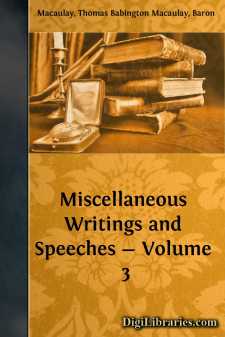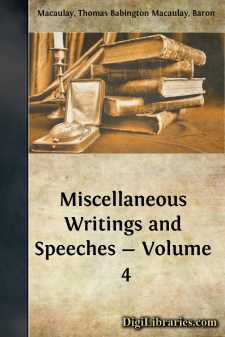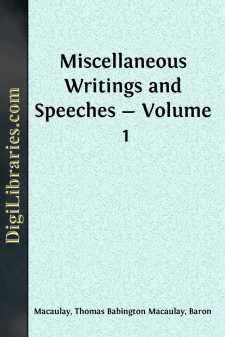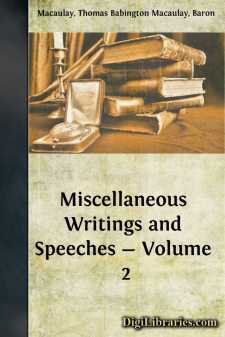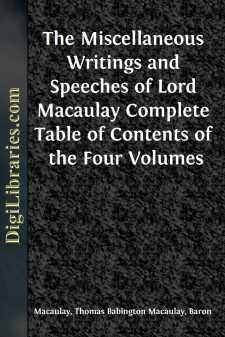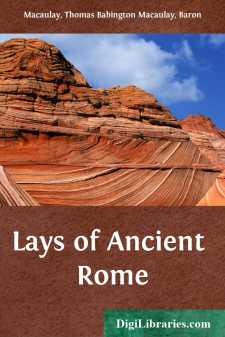Categories
- Antiques & Collectibles 13
- Architecture 36
- Art 48
- Bibles 22
- Biography & Autobiography 813
- Body, Mind & Spirit 142
- Business & Economics 28
- Children's Books 17
- Children's Fiction 14
- Computers 4
- Cooking 94
- Crafts & Hobbies 4
- Drama 346
- Education 46
- Family & Relationships 57
- Fiction 11829
- Games 19
- Gardening 17
- Health & Fitness 34
- History 1377
- House & Home 1
- Humor 147
- Juvenile Fiction 1873
- Juvenile Nonfiction 202
- Language Arts & Disciplines 88
- Law 16
- Literary Collections 686
- Literary Criticism 179
- Mathematics 13
- Medical 41
- Music 40
- Nature 179
- Non-Classifiable 1768
- Performing Arts 7
- Periodicals 1453
- Philosophy 64
- Photography 2
- Poetry 896
- Political Science 203
- Psychology 42
- Reference 154
- Religion 513
- Science 126
- Self-Help 84
- Social Science 81
- Sports & Recreation 34
- Study Aids 3
- Technology & Engineering 59
- Transportation 23
- Travel 463
- True Crime 29
Miscellaneous Writings and Speeches - Volume 3
Categories:
Description:
Excerpt
FRANCIS ATTERBURY. (December 1853.)
Francis Atterbury, a man who holds a conspicuous place in the political, ecclesiastical, and literary history of England, was born in the year 1662, at Middleton in Buckinghamshire, a parish of which his father was rector. Francis was educated at Westminster School, and carried thence to Christchurch a stock of learning which, though really scanty, he through life exhibited with such judicious ostentation that superficial observers believed his attainments to be immense. At Oxford, his parts, his taste, and his bold, contemptuous, and imperious spirit, soon made him conspicuous. Here he published at twenty, his first work, a translation of the noble poem of Absalom and Achitophel into Latin verse. Neither the style nor the versification of the young scholar was that of the Augustan age. In English composition he succeeded much better. In 1687 he distinguished himself among many able men who wrote in defence of the Church of England, then persecuted by James II., and calumniated by apostates who had for lucre quitted her communion. Among these apostates none was more active or malignant than Obadiah Walker, who was master of University College, and who had set up there, under the royal patronage, a press for printing tracts against the established religion. In one of these tracts, written apparently by Walker himself, many aspersions were thrown on Martin Luther. Atterbury undertook to defend the great Saxon Reformer, and performed that task in a manner singularly characteristic. Whoever examines his reply to Walker will be struck by the contrast between the feebleness of those parts which are argumentative and defensive, and the vigour of those parts which are rhetorical and aggressive. The Papists were so much galled by the sarcasms and invectives of the young polemic that they raised a cry of treason, and accused him of having, by implication, called King James a Judas.
After the Revolution, Atterbury, though bred in the doctrines of non-resistance and passive obedience, readily swore fealty to the new government. In no long time he took holy orders. He occasionally preached in London with an eloquence which raised his reputation, and soon had the honour of being appointed one of the royal chaplains. But he ordinarily resided at Oxford, where he took an active part in academical business, directed the classical studies of the undergraduates of his college, and was the chief adviser and assistant of Dean Aldrich, a divine now chiefly remembered by his catches, but renowned among his contemporaries as a scholar, a Tory, and a high-churchman. It was the practice, not a very judicious practice, of Aldrich to employ the most promising youths of his college in editing Greek and Latin books. Among the studious and well-disposed lads who were, unfortunately for themselves, induced to become teachers of philology when they should have been content to be learners, was Charles Boyle, son of the Earl of Orrery, and nephew of Robert Boyle, the great experimental philosopher....


